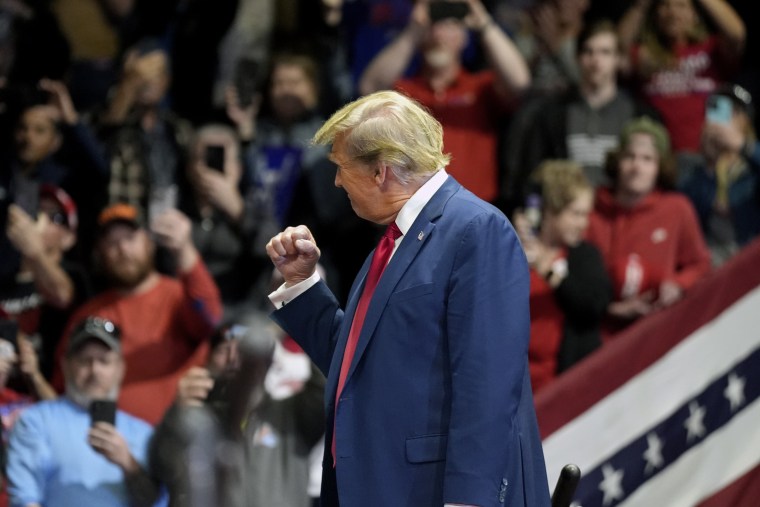On March 4, Donald Trump emerged victorious in the Republican presidential caucuses in North Dakota, continuing his winning streak ahead of Super Tuesday.
In a vote that took place across 12 caucus locations, the former president defeated former U.N. Ambassador Nikki Haley. With this outcome, Mr. Trump resumes his winning streak, which was momentarily halted on Sunday when Ms. Haley emerged victorious in the District of Columbia primary.

Super Tuesday: Candidates Compete for Delegates
The presidential candidates now focus on Super Tuesday, when results from 16 states will be poured into races that will provide the most number of delegates awarded on any one day of the primary.
Delegates are awarded to candidates that receive at least 20% of the vote in North Dakota, according to the state’s regulations. All 29 delegates from the state go to the candidate who achieves at least 60% of the vote.
Nikki Haley and Mr. Trump were two of the four candidates running on the ballot. The two contenders, David Stuckenberg, a businessman from Florida, and Ryan Binkley, a businessman and pastor from Texas, who just called it quits, have drawn little notice.
Almont resident and retired music instructor Karen Groninger, a librarian, declared on Monday that she voted for Mr. Trump because she thought he was the greatest option. The 76-year-old mentioned Mr. Trump‘s immigration policies and his 2020 address at the annual March for Life anti-abortion gathering in Washington, DC, which was the first by a sitting president.

Longtime Bismarck Republican state senator Dick Dever said he voted for Ms. Haley, but he also noted that she is not likely to win. “I hear an awful lot of people say that they liked Mr. Trump’s policies but they don’t like the way he conducts himself, and I think he’s gone overboard a bit,” the 72-year-old former manufacturing representative remarked.
Party Membership and Caucus Participation
While purchasing party membership was recommended for caucus votes, caucus chair Robert Harms requested individuals who refused to pay USD 50 for annual membership to promise to connect with the party.
The only state without voter registration is North Dakota. The caucuses adhered to state-mandated voter identification procedures, which included presenting a driver’s license. Only in-person votes on paper ballots, which will be manually tallied, were cast.

One of the delegates from North Dakota assisted Mr. Trump in obtaining the necessary number to win the Republican presidential nomination in 2016. He received around 63% and 65% of the three electoral college votes that North Dakota was awarded in 2016 and 2020, respectively.
In 2017, while still in office, President Trump traveled to Bismarck and Mandan to discuss tax reforms. In 2018, he made two trips to Fargo to support then-Congressman Kevin Cramer in his victorious Senate race against Democratic Sen. Heidi Heitkamp.
The Democratic-NPL Party of North Dakota is conducting a nearly mail-in presidential primary. Voting by mail will be available from February 20 to March 30, with limited in-person voting for those living on Indian reservations. Rep. Dean Phillips, President Joe Biden, and six other candidates are running.
On March 30, a third party will tally the votes in Fargo; the results will be posted on the party website thereafter. In both 2020 and 2016, Sen. Bernie Sanders prevailed in the Democratic caucuses.












Comments 1